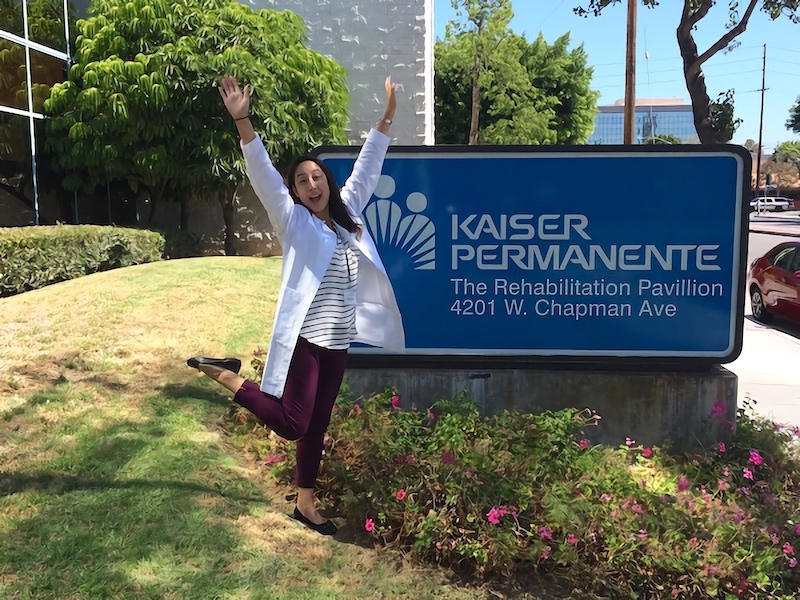What is fieldwork?

August 30, 2016
by Jessica
A lot of prospective students have questions about fieldwork, so I thought I’d address that in this post!
A great thing about being an OT student is not just learning new concepts and interventions in class, but actually putting the knowledge into practice. That’s where fieldwork comes into play! As an OT student, you will be participating in two types of fieldwork: Level I and Level II. Level I fieldwork provides exposure into specific practice area, where depending on the setting, you may mostly observe OT practice in that area, or you may get to be more hands on with clients. At USC specifically, you get three Level I experiences, one in each of our major practice areas: adult rehab, mental health, and pediatrics. You’ll have each Level I fieldwork experience coincide with the practice area you are studying for that semester. So for example, since I’m currently in the Pediatrics practice area immersion, I will doing my Level I fieldwork in pediatrics this semester. Each Level I fieldwork experience occurs 1 day per week for 10 weeks, with one week of full-time fieldwork in the middle of the semester.
Level II fieldwork, on the other hand, much more hands-on, as the end goal is to become a competent entry-level therapist. At USC, you’ll have two Level II fieldwork experiences — one in the summer between your first and second year, and one the summer after your second year of coursework. Each Level II experience runs for 12 weeks, under a full-time therapist’s schedule. Throughout the summer, you will be supervised by a clinical instructor at your site, who will be supervising you and helping you develop your skills as an OT practitioner. Sounds a little scary right? Don’t worry — your clinical instructor will be there to give you feedback and help you develop your clinical reasoning skills. At my Level II fieldwork site this past summer, my clinical instructor graded my responsibilities — mostly observation and orientation my first week, then gradually adding on an additional patient to my caseload each week until I had a full caseload.
Overall, all of your fieldwork experiences are going to help you develop your skills as a therapist. Try to remember to keep an open mind. You may be placed a site you don’t think is “ideal” (FYI — no site is perfect), but there’s always things to take away from those experiences. Whether it’s gaining exposure to a practice area you may have never considered before, or working on building interpersonal skills with clients, there is so much value in being able to spend time out in the field, learning by doing.

My first day of my first level I fieldwork at Kaiser Rehabilitation Pavilion in Orange! Clearly excited.
⋯
Next by tag Fieldwork ⟩
⋯





